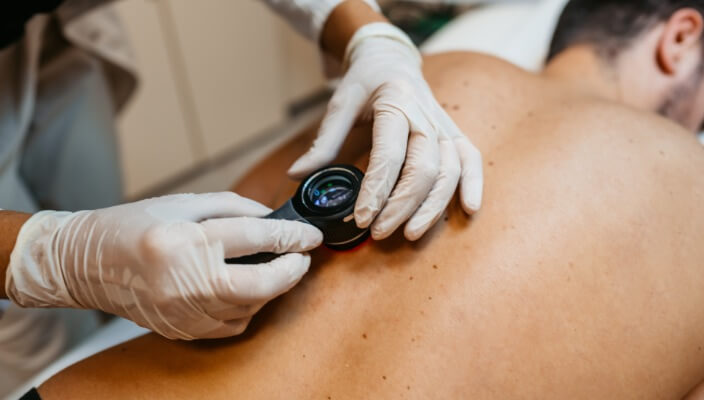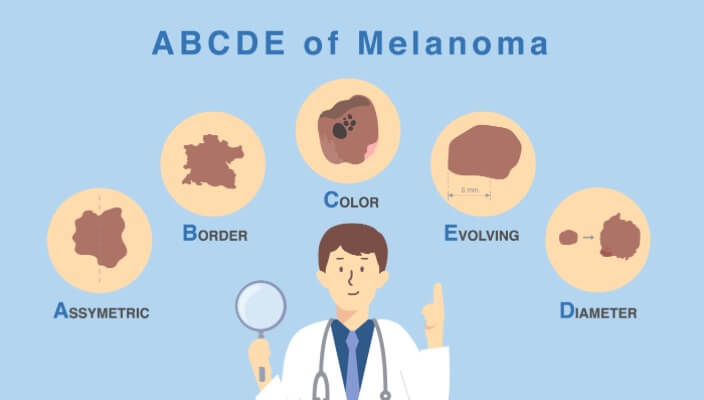Who Should Get Screened for Skin Cancer and How Often?
 Skin cancer is classified as the most common form of cancer worldwide, although it is also known as one of the most preventable and treatable forms of cancer in the human body as well. Routine skin screenings, biopsies, and proper skincare can significantly reduce your risks of developing potentially harmful or life-threatening forms of skin cancer. Learning about who should get skin cancer screenings and how often is a way to maintain your peace of mind at any age.
Skin cancer is classified as the most common form of cancer worldwide, although it is also known as one of the most preventable and treatable forms of cancer in the human body as well. Routine skin screenings, biopsies, and proper skincare can significantly reduce your risks of developing potentially harmful or life-threatening forms of skin cancer. Learning about who should get skin cancer screenings and how often is a way to maintain your peace of mind at any age.
Who Should Get Screened for Skin Cancer?
While it's important to undergo professional skin checks and self-checks to look for abnormal skin growths, moles, or spots, other risk factors may put you at greater risk of developing skin abnormalities and cancers, such as:
- Family History: If you have a family history of skin cancer, moles, and growths that have turned cancerous, you may want to see a dermatologist more frequently than the average individual.
- Fair Skin: People with fairer skin, lighter eyes, and even lighter hair may be at an increased risk of developing skin cancer due to a lack of melanin in their skin.
- Tanning: Tanning beds emit harmful UV rays that can contribute to potentially deadly forms of skin cancer, such as melanoma. We recommend that you should never use a tanning bed. If you have used one in the past, you will be at a higher risk of developing skin cancer and, therefore, should be screened more often.
- Atypical Moles: If you begin developing numerous or atypical moles around the body, it may be time for a thorough skin check from a professional.
- Spend Time in the Sun: Those who love the outdoors and spending time in the sun may increase their risk of skin damage or cancer.
- Age: Routine skin checks are recommended for people over 50, as skin cancer risks drastically increase around this age.
How Often Should You Get Screened for Skin Cancer?
Getting screened for skin cancer will depend on your age and potential risk factors. When determining how frequently you need to be screened for skin cancer, consider the following:
Individuals With a History of Skin Cancer
Low to Average Risk Individuals
High-Risk Individuals
Keystone Dermatology Partners Can Help
To learn more about skin cancer screenings or to schedule your consultation or appointment today, turn to Keystone Dermatology Partners. At Keystone Dermatology Partners, we will work with you to ensure you receive the proper diagnosis, treatment, and care every step of the way. If you're ready for your consultation or skin cancer screening, contact Keystone Dermatology Partners today to speak with one of our highly trained healthcare professionals and to schedule your appointment.
Related Blogs

- Skin Cancer
- Skin Exams
With skin cancer cases rising year after year, it’s no surprise that people are itching to learn more about this life-threatening skin disease
Read More
- Skin Cancer
- Skin Exams
In this blog, we’re covering what you need to know about five dangerous skin cancers, including basal cell carcinoma (BCC), squamous cell carcinoma (SCC), malignant melanoma, merkel cell carcinoma, and kaposi sarcoma.
Read More
- Skin Cancer
- General Dermatology
- Skin Exams
Navigating the landscape of Total Body Skin Exams: Uncover the comprehensive process, understand why it matters for skin health, and gain insights into what to expect during these essential dermatological examinations.
Read More


